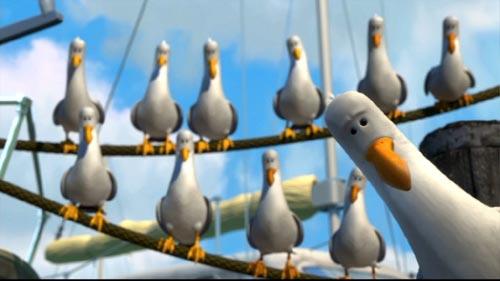The concept of technological determinism can be explained with the quote from Homer (unconfirmed) â??The blade itself incites to violenceâ??. When I try to explain technological determinism to my students I usually ask them to think about their iPods. What are the people who build and sell a device which fits 10 000 songs saying about intellectual property?
Another cool application of technology is flickr.com. I like the work of the graffiti artist Banksy so here are a few images taken from the Banksy pool.
–
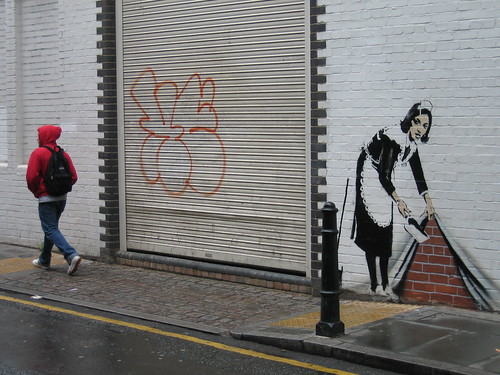
wyn gilley
–
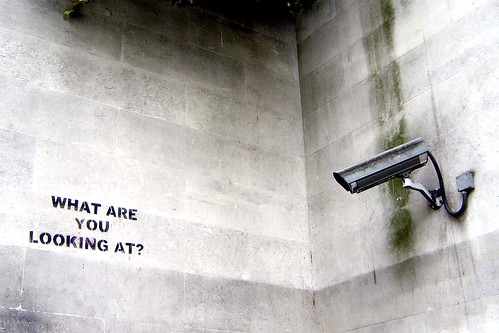
Marble Arch. Nolifebeforecoffee.
–
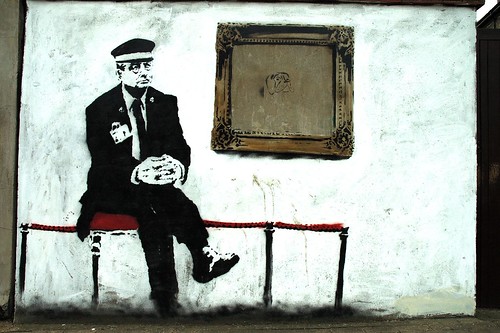
Near Drayton Park Train Station, N7 London. atomic shed.
–
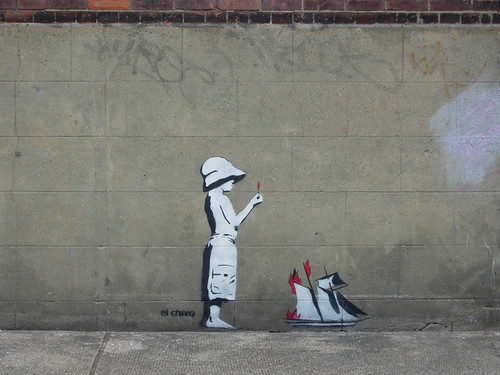
Hocker Street, Shoreditch. distantbombs.
–
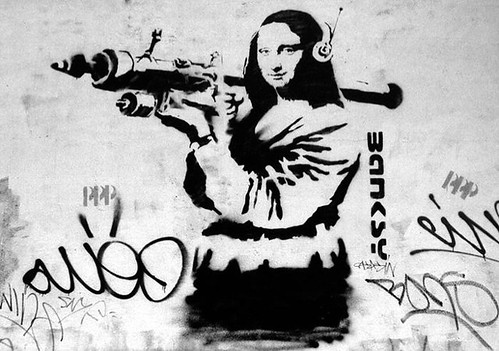
Corner of Noel Street and Poland Street, London, 2001. Simon Crubellier.
The point (not of Banksy but of technology application) is that in a cool interconnected way I can follow Banksyâ??s work. Since he is a graffiti artist it is not going to be displayed for too long. Flickr provides both the storage medium but also a searchable area where interests can gather. Not only can I find images from all over the world I can also follow them by theme (e.g. Banksy) and see the work of different photographers. The development of the social organisation of photography via sites like this is very cool.
The point is not simply mindless technology optimism but rather that given a technological base people will find social uses for it. It is not about developing a business model but rather that by applying technology in an unorthodox way people will develop and organise their interactions with the help of technology. But we still need to develop the technology and make it more available, cheaper and free to manipulate.
Part of the problem is (naturally) that there is not enough political will to fulfill this vision. As soon as we approach anything like this someone starts talking about the need to ensure that business can profit from technology. Profiting from technology is ok – but not if it stops the development of a better socio-technical organisation. The development of a new socio-technical organisation began the dissemination of the web but has faltered with the demands of business to make profit and the inevitable crash of a market based upon words & greed…






